Author: Mariusz Patelski
Translation: Jadwiga Komornicka
Wincenty Jordan Rozwadowski “Pascal” – an outline to the biography of a soldier, conspirator and anti-racist activist in South Africa
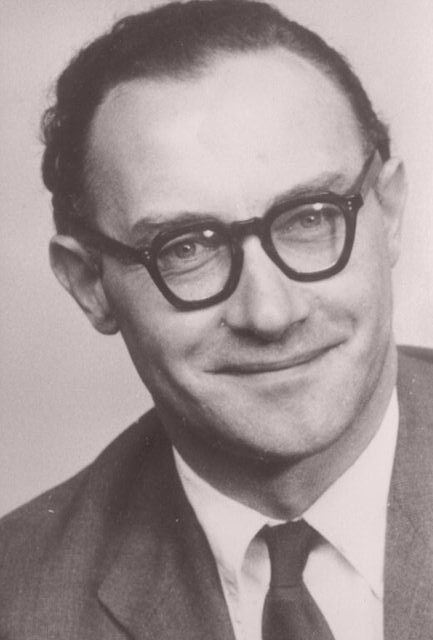
Latest findings by researchers of the 2nd World War, and particularly results of the work of the Polish-British Historical Commission concerning the Documentation of the Activity of Polish Intelligence during the 2nd World War have established conclusively that the Polish contribution towards the final victory of the Allies over the Third Reich was far greater than has been believed to date. Polish soldiers showed great fortitude fighting on all fronts in the 2nd World War but immeasurably higher was the contribution of our intelligence service in the war on information which in the final count shortened the world conflict by many months if not years.
That effect was possible due to the engagement of a 20 thousand mass of our compatriots creating numerous intelligence networks enveloping within their range almost all the countries and continents occupied by the axis countries. It is currently estimated that 40 per cent of the information reaching the British authorities derived from Polish sources, and getting hold of the V1 and V2 plans or breaking the Enigma codes are the most spectacular yet not unique successes of Polish intelligence.
Significant successes in the battle with German forces were displayed by the creators of Polish intelligence in occupied France. Alongside Marian Romeyko, pseudonym MAK, Zdzisław Piątkiewicz (BIZ), Stanisław Łucki (ARAB) or Leon Śliwiński (JEAN-BOL), their circle included Wincenty Jordan Rozwadowski (PASCAL) [1].
Wincenty Jordan Rozwadowski was born in Lausanne into the family of Jan Emanuel and Maria, née Rozwadowska. His father – a landowner and economist was a politician in the National Democratic Movement and a close collaborator of Roman Dmowski. At the outbreak of the Ist World War the Rozwadowski family temporarily emigrated to Switzerland fearing repression by the Austrian authorities. In exile Jan Rozwadowski was active in the cause for Polish independence and that was where his youngest son Wincenty was born on 2 January 1916.
After the war Wincenty returned to Poland with his father and settled in Lwów. The Rozwadowski family’s rapid return to Poland was no doubt linked with Maria Rozwadowska’s death. After their mother’s death Wincenty and his brother Franciszek were looked after by their eldest sister Cecylia [2]. From 1926 to 1929 Wincenty attended the Stanisław Staszic school in Lwów and later a Catholic school “Villa St. Jean” in Freibourg in Switzerland, eventually doing his baccalaureate in Besançon in 1933. A year later he also passed his baccalaureate in the IX Gymnasium in Lwów [3]. In those days he would often spend his holidays with his family at the seaside in Jastrzębia Góra. That was also where his paternal uncle, General Tadeusz Jordan Rozwadowski rested after returning from prison in Antokol, Vilnius. The old general taught his nephew three things which Wincenty later recalled proved very useful i.e. “swimming in the sea, playing bridge and typewriting” [4].
He studied at the Higher School of Foreign Trade in Lwów, the only academic institution of that type during Poland’s Second Republic. Students at that institution studied general commerce, the principles of foreign trade and foreign service [5]. It is also worth mentioning that during his studies Wincenty was one of the student leaders of the National Democratic Movement. As he said years later, in those days politics took up more of his time than learning [6]. After graduating he did a commercial traineeship in the export department of the Association of Exploitation of Potassium Nitrate (TESP) managing the mines in Kałusz, Stebnik and Chołyń. Doing his traineeship there was not accidental; the co-founders of TESP were his two paternal uncles, the late General Tadeusz Jordan Rozwadowski and Wincenty Jordan Rozwadowski from Babin [7].
He did his military service in 1937 – 1938 at the Officer Cadet School of the Artillery Reserve (SPRA) in Włodzimierz Wołyński. That was one of the best schools of the kind in Europe. It is characteristic that apart from their normal courses, SPRA students ran a variety of cultural and educational activities and there was even a school jazz band. An important event for the school during Wincenty’s time there was naming the school. Its patron became Marcin Kącki – the XVII century reformer of the Polish cavalry [8].
After leaving the army Wincenty Rozwadowski started working. He first managed a team searching for crude oil in Podole and later worked in a fruit processing plant in Wielkopolska. He planned to go to the USA in January 1940 to do various traineeships but the outbreak of war made that impossible [9].
On the eve of the 2nd World War platoon cadet officer Rozwadowski was called to the 6th Division of Horse Artillery (DAK) in Stanisławów which was part of the Podole Cavalry Brigade. With his unit he went through the entire combat trail of the September campaign. He fought in the battle along the river Bzura and after battle on 16 September took part in a deadly crossing across the river. Due to a hold-up on the bridge the artillerymen were forced to push large-calibre guns by hand across to the opposite bank from which the heavy guns rolled down due to the steep slope [10]. The further trail went through Kampinos Forest, where the division experienced severe losses, of horses in particular. After pushing their way through the forest, getting to Warsaw was a no less dramatic struggle. This is where Wincenty’s division joined General Roman Abraham’s Group Cavalry Brigade which fought in the battle for Warsaw. Meanwhile, due to lack of equipment the officers from the 6th DAK were joined into the 14th Jazłowiec Lancers’ Regiment. It was with that unit that Wincenty defended the Czerniaków section until the capital’s capitulation on 28 September 1939 [11].
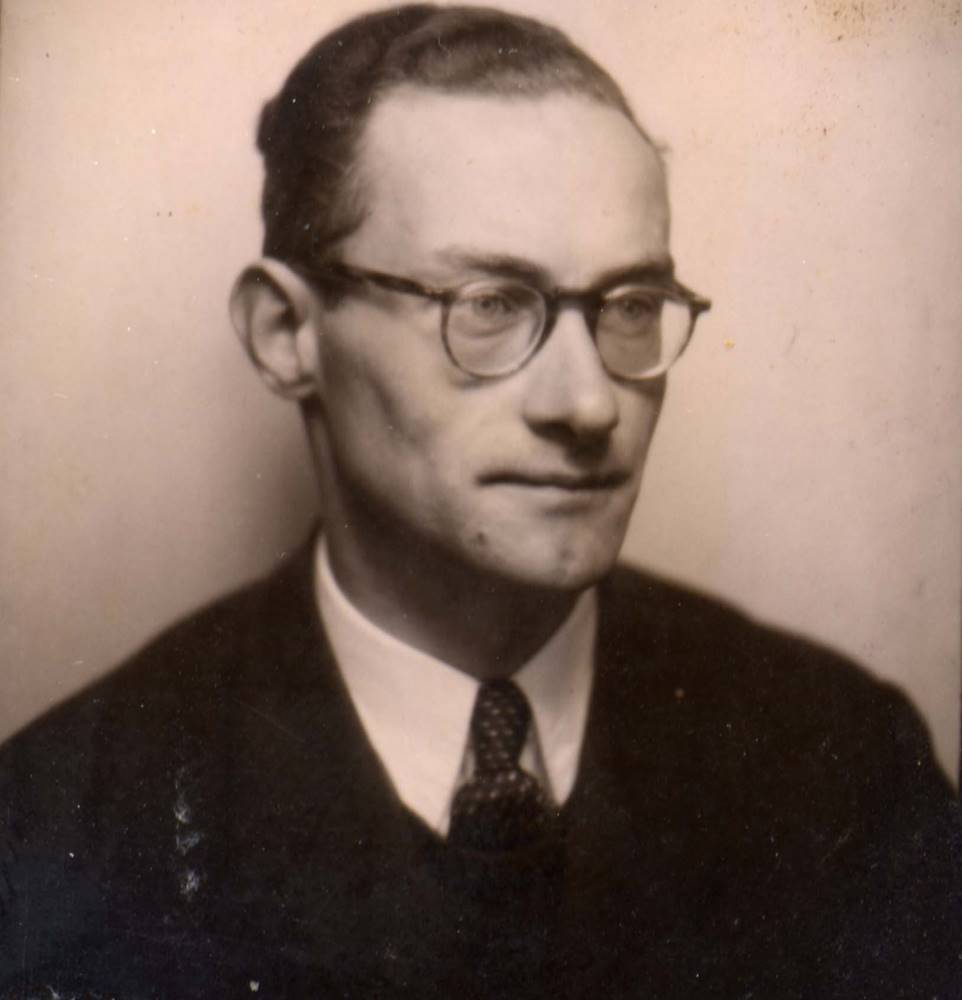 After the fall of Warsaw Rozwadowski was taken prisoner but soon released. The hardship of the September campaign did not discourage him from taking part in further battle. In November he set off through Hungary, Yugoslavia and Italy to France where he arrived before the end of the year [12].
After the fall of Warsaw Rozwadowski was taken prisoner but soon released. The hardship of the September campaign did not discourage him from taking part in further battle. In November he set off through Hungary, Yugoslavia and Italy to France where he arrived before the end of the year [12].
In France Rozwadowski underwent training in a camp for artillery officers in La Roche sur Yon. He took part in the French campaign as a platoon commanding officer in the 1st light artillery regiment of the 1st Polish Division (Grenadiers) until that unit’s dissolution after France’s defeat in July 1940 [13]. Wincenty ended his combat trail in St. Die in Lorraine, after which he made his way to Paris on a bicycle and from there to Toulouse. He was awarded the Croix de Guerre for his wartime action during the French campaign [14].
After the fall of France the most important task which the Polish command were faced with was the redeployment of Polish soldiers from broken units to new units taking shape in Great Britain. A clandestine evacuation network was also starting to form under Mayor Mieczysław Słowikowski’s (RYGOR) command. In August 1940 the young Polish officer who spoke fluent French and had extensive contacts in aristocratic and industrial circles in France and Switzerland was engaged in the organization of the network [15]. Rozwadowski joined the underground movement in the select company of Adolf Bocheński and Mieczysław Pruszyński. Wincenty soon headed the post in Perpignan and in May 1941 as Henryk Łubieński’s deputy, headed a Transit and Escape unit on the Spanish border [16].
It is significant that two other Rozwadowskis acted in the same area – Captain Janusz of the Belarusian Rozwadowski branch, pseudonym WAD [17], mentioned in the memoirs of the famous courier Jerzy Lerski, as a commanding officer of groups of refugees and emissaries smuggled over the Spanish border [18] and Wiktor Jordan Rozwadowski (son of Wincenty), pseudonym TOR. It was not accidental that the latter began his intelligence career in France. After the September campaign he escaped to Switzerland where he was recruited by his cousin Wincenty PASCAL [19].
Meanwhile, Wincenty Rozwadowski was appointed Aide-de-camp to General Juliusz Kleeberg and special operations officer, officially the head of Polish working companies formed by the French authorities in unoccupied France, but in fact the commanding officer of Polish intelligence in France. PASCAL was General Kleeberg’s liaison officer in the Resistance, in various political circles and for the French generals, including General Maxime Weygand and General Henri Giraud [20]. As Major Mieczysław Słowikowski RYGOR mentions in his memoirs, Wincenty’s contacts with General Weygand were very good because the old general was “on good terms with his family and particularly with General Tadeusz Rozwadowski, the former Chief of Staff in 1920” [21].
Wincenty held the position of Aide-de-camp to General Kleeberg until the end of his stay in France and in the second half of 1942, together with Wojciech Wasiutyński, accompanied the general in his evacuation to Gibraltar. From there the general went to London and Rozwadowski returned to France [22].
From 1941 Wincenty began his collaboration with the maritime network of Polish intelligence in France (“Marine”, PO-4, then Agency “F”). In August 1942 a ‘special sector’ of the “Marine” network led by Pascal, filled the gap which appeared in political intelligence after the arrest of Władysław Potocki (CALIXTE) who had earlier been engaged in similar activity [23].
He was recruited to Leon Śliwiński’s (BOLESŁAW) leading intelligence network team, extending his activity to military intelligence. After the partial disintegration of that network and destruction of its headquarters in Nice in December 1942, Pascal played a decisive role in its reconstruction. In February 1943 he clandestinely went to Switzerland where he reestablished contact with the London Headquarters of the Polish 2nd Bureau [24]. In Geneva he held talks with the representatives of the Swiss secret service which led to signing an inter-intelligence agreement, on the strength of which the Swiss pledged not to disturb Polish agents in their activities conducted against the Germans. Hence a safe base was created in Switzerland, due to which communication routes were reconstructed linking Polish intelligence in France with the High Command in Great Britain [25].
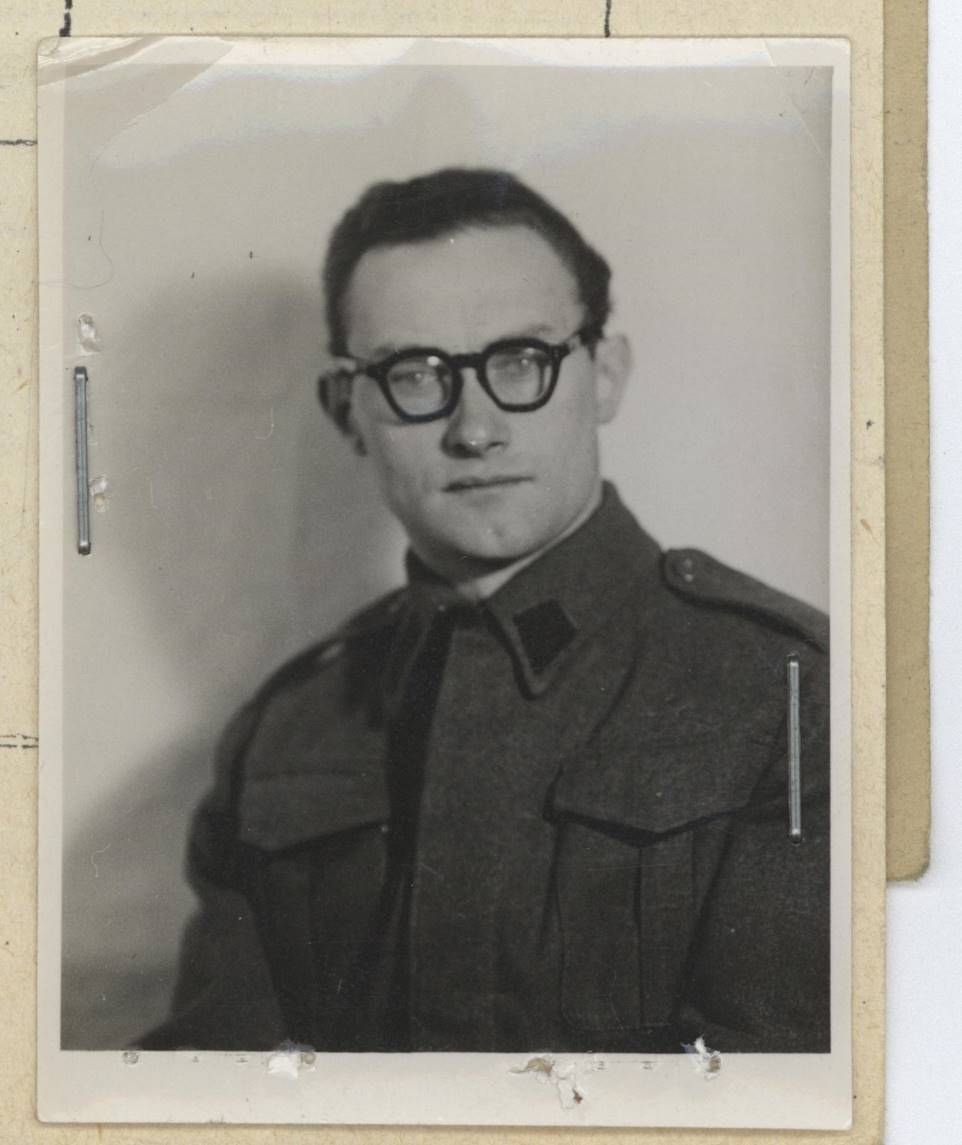 After creating the new intelligence network “F2”, Pascal became Deputy to Major Zdzisław Piątkiwiecz (BIZ) and the de facto chief of the intelligence operation [26]. Created thanks to his energy and determination branches of F2 covered the entire territory of France, supplying the Polish command and the Allies with priceless information by both radio and air [27]. Those reports included the stocks of the German army and navy, German fortifications, war industry as well as the goals and evaluation of allied air raids. In March 1943 thanks to Polish intelligence the Allies got hold of the map of German fortifications in Holland, Belgium and France. That map was constantly elaborated with information concerning German fortifications in Normandy, Brittany and Flanders [28].
After creating the new intelligence network “F2”, Pascal became Deputy to Major Zdzisław Piątkiwiecz (BIZ) and the de facto chief of the intelligence operation [26]. Created thanks to his energy and determination branches of F2 covered the entire territory of France, supplying the Polish command and the Allies with priceless information by both radio and air [27]. Those reports included the stocks of the German army and navy, German fortifications, war industry as well as the goals and evaluation of allied air raids. In March 1943 thanks to Polish intelligence the Allies got hold of the map of German fortifications in Holland, Belgium and France. That map was constantly elaborated with information concerning German fortifications in Normandy, Brittany and Flanders [28].
The F2 network continued to operate incessantly despite constant arrests and the German hunt for almost all Poles living in France. In 1943 the Gestapo arrested Wiktor Jordan Rozwadowski (TOR). The prisoner was subjected to heavy interrogation and torture for six months after which he was moved to a prison in Czechoslovakia where he remained until the end of the war. Wincenty, whose name was high on the list of searched enemies of the III Reich, had more luck and despite he was arrested twice, he manage to escape and saw the liberation of France [29].
The phenomenon of the success of F2, as Wincenty later explained, was the excellent organization of specific intelligence units which had several security devices, the rigorous observation of principles of conspiracy and the devotion of people working there the majority of whom did so for ideological reasons [30]. In 1944 1500 agents worked for F2, most of them being French but F2 was under Polish command. It was interesting, as underlined by Wincenty that among French society the most ideological collaborators in the network were recruited among Catholic priests, French Jews and Gypsies [31].
Prior to liberation with the help of the special operations group Pascal managed to organize a network working in Lorraine and Alsace at the rear of the German army. After the end of the war he took part in the work of the committee liquidating the F2 network [32]. In 1946 he wrote a historical report about F2.
The death of his eldest sister, Cecylia on 8 June 1946, who looked after him as a child must have been an undeniable blow to him. Cecylia had left the prisoner of war camp for women soldiers in Oberlangen in 1945. When free she energetically set about organizing the schooling of young girls who had taken part in the Warsaw Uprising. During that work she fell ill with cancer and died [33].
Meanwhile, the post-war situation in France as in Great Britain was not favourable towards the Poles, soldiers who had neither reason nor desire to return to their country under communist rule. Former defenders had now become an inconvenient burden, there were no jobs for them nor room in schools or universities. Therefore, many of them decided to emigrate from the Old Continent to other friendlier pats of the free world. A group of Rozwadowskis also found themselves in such a predicament and they chose South Africa as their destination. That group included Franciszek (Jan Emanuel’s son), Jan Dukla (Colonel Adam’s son), Jacek Feliks (Professor Jan Michał’s son) and Wincenty (PASCAL) [34].
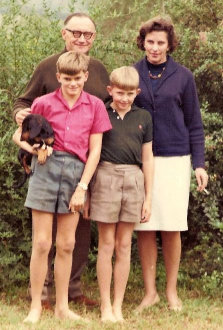 Wincenty initially lived in the Union of South Africa (later the RSA) where he ran a business in Johannesburg until 1953. In the same year he married Mary McIntosh Glennie from Cape Town and they had two sons Franciszek (1954) and Michał (1956) [35]. The beginning of Rozwadowski’s stay in South Africa coincided with the time of the growing influence of the Afrikaner Nationalist Party whose activists after winning the 1948 elections started building the apartheid system separating the local community into groups according to colour. The experiences of the 2nd World War, the battle against the Nazis who had also tried to divide people according to race and background, meant that Wincenty Rozwadowksi – a former National Democrat, became an opponent of apartheid. On his decision had also an influence his young wife Mary being a member of the South African Liberal Party which was headed by the famous writer, Alan Paton, author of “Cry the beloved country” (translated into Polish in 1954) [36]. Wincenty, in his own words, became a “revolutionary liberal” or “radical liberal”. This is how he defined that liberalism: “For example, I can’t bear the kind of liberal for whom every black person in Africa is better than a white person, just because he is black. For me without going into much detail and giving a negative definition, liberalism is a socio-political philosophy which is the antithesis of any kind of totalitarianism, right or left. However, this does not mean that I am in favour of anarchy: Ordnung muss sein…” [37].
Wincenty initially lived in the Union of South Africa (later the RSA) where he ran a business in Johannesburg until 1953. In the same year he married Mary McIntosh Glennie from Cape Town and they had two sons Franciszek (1954) and Michał (1956) [35]. The beginning of Rozwadowski’s stay in South Africa coincided with the time of the growing influence of the Afrikaner Nationalist Party whose activists after winning the 1948 elections started building the apartheid system separating the local community into groups according to colour. The experiences of the 2nd World War, the battle against the Nazis who had also tried to divide people according to race and background, meant that Wincenty Rozwadowksi – a former National Democrat, became an opponent of apartheid. On his decision had also an influence his young wife Mary being a member of the South African Liberal Party which was headed by the famous writer, Alan Paton, author of “Cry the beloved country” (translated into Polish in 1954) [36]. Wincenty, in his own words, became a “revolutionary liberal” or “radical liberal”. This is how he defined that liberalism: “For example, I can’t bear the kind of liberal for whom every black person in Africa is better than a white person, just because he is black. For me without going into much detail and giving a negative definition, liberalism is a socio-political philosophy which is the antithesis of any kind of totalitarianism, right or left. However, this does not mean that I am in favour of anarchy: Ordnung muss sein…” [37].
In 1956 Wincenty moved to Mbabane in Swaziland. He was a farmer for 13 years and then sold his farm after a natural disaster. From 1966 he became a businessman, running an estate agency, an advertising agency and a property development business. [38]
In the years 1960-1968 he took part in the black emancipation movement against the leading colonial power of the English. At that time he was a cofounder of the Swaziland Democratic Party which was opposed to any form of racism. As a political activist, was equally opposed to apartheid, local tribal monarchy and communism [39]. Rozwadowski was also a cofounder and leader of the Sebenta National Institute, an organisation dealing with the battle against illiteracy as well as promoting education and culture. In 1963 as the only “white” representative of SDP he took part in the London political talks preceding Swaziland’s independence and granting it a democratic constitution. He stood in vain as a candidate in the elections to Swaziland’s first parliament, after which he withdrew from political activity. However, he remained in the leadership of the Sebenta National Institute and was active in promoting the rights of the black population.
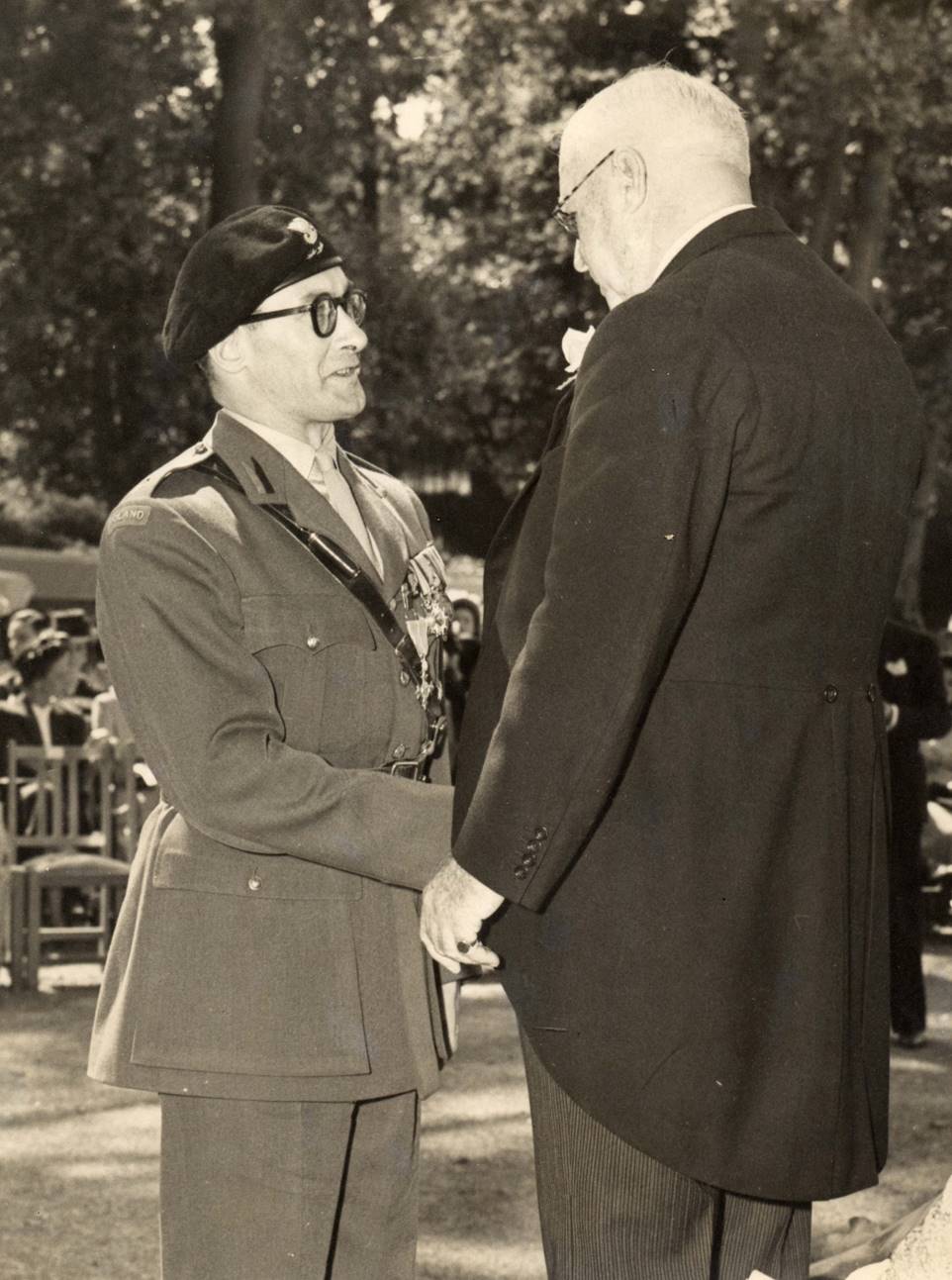 The last years of Wincenty’s life, despite his suffering as a result of progessive cancer, were filled with optimism and a youthful sense of humour. He worked on the documentation of the activity of the F2 network. He corresponded extensively with, among others, Leon Śliwiński and Stanisław Łucki, he collected historical materials, updated drawn earlier lists of members of the intelligence and completed information about F2 by integrating facts that had not been available earlier [40]. Related materials and correspondence were passed on to the Polish National Archives in Warsaw by his son Franciszek Jordan Rozwadowski on 1 September 2000 [41]. Wincenty Jordan Rozwadowski died on 13 December 1975 after a long illness in Mbabane, the capital of Swaziland. For his military activity, apart from the Croix de Guerre, he was awarded also the Virtuti Militari, the French Legion of Honour and the Order of the British Empire [42].
The last years of Wincenty’s life, despite his suffering as a result of progessive cancer, were filled with optimism and a youthful sense of humour. He worked on the documentation of the activity of the F2 network. He corresponded extensively with, among others, Leon Śliwiński and Stanisław Łucki, he collected historical materials, updated drawn earlier lists of members of the intelligence and completed information about F2 by integrating facts that had not been available earlier [40]. Related materials and correspondence were passed on to the Polish National Archives in Warsaw by his son Franciszek Jordan Rozwadowski on 1 September 2000 [41]. Wincenty Jordan Rozwadowski died on 13 December 1975 after a long illness in Mbabane, the capital of Swaziland. For his military activity, apart from the Croix de Guerre, he was awarded also the Virtuti Militari, the French Legion of Honour and the Order of the British Empire [42].
Download:
Pascal and F2 (Wincenty Jordan Rozwadowski and Network F2) (Download)
Footnotes:
- J. Medrala, Les réseaux de renseignements franco-polonais 1940-1944. Réseau F, Marine, Famille – Interallié, Réseau F2, Etoile, PSW – Afrique, Enigma – Equipe 300, Suisse 3, L’Harmattan: Paris 2005, p.265, passim.; J. Zamojski, Biographical entry on Wincenty Marja Rozwadowski, [in:] Polski słownik biograficzny, vol. XXXII, Wrocław 1989-1991, p.422.
- M.Patelski, Minister Oświaty z obozu w Oberlangen. Szkic do biografii Cecylii Jordan Rozwdowskiej (1903-1946) (Minister of Education from the camp in Oberlangen. An outline to the biography of Cecylia Jordan Rozwadowska (1903 -1946), “Biuletyn Informacyjny” (quarterly of the Warsaw section of TMLIKPW), 2005, No. 36, pp.20-24.
- The Public Archives in Warsaw (further AAN), the dossier of Wincenty Jordan Rozwadowski “Pascal”, File A, Wincenty Marja Jordan Rozwadowski [life history], Paris, 23 X 1944; author’s collection, Historia rodziny Jordan Rozwadowskich (The history of the Jordan Rozwadowski family), according to Kronika Rodzinna (Family Chronicles) by Adam Rozwadowski and “Rozwadowski papers” in the Ossolineum Library in Wrocław, prepared by E. Rozwadowski, p.91.
- AAN, the dossier of WJR, File 15, Wincenty Rozwadowski’s letter to Leon Śliwiński, 22 July 1973, p.2.
- wikipedia.org/wiki/Akademia_Handlu_Zagranicznego_we_Lwowie.
- Author’s collection, Franciszek Rozwadowski’s letter to Mariusz Patelski, 25 VII 2003.
- M. Patelski, The Development of New fields of Industry during the 2nd Republic – the case of the Association of Exploitation of Potassium Nitrate in Kałusz, Stebnik and Chołyń, (to be published).
- Tadeusz Jordan Rozwadowski, Wincenty’s son, attended the same school in 1926-1927, and was awarded the Order of Virtuti Militari for his role in the September campaign. The author’s collection, , A history of the Jordan Rozwadowski family, based on Adam Rozwadowski’s “Family Chronicles” and the “Rozwadowski Papers” from the Ossolineum Library in Wrocław prepared by E. Rozwadowski, p. 110; J. Łukasiak, Wołyńska Szkoła Podchorążych Rezerwy Artylerii im. Marcina Kąckiego, Pruszków 2000, pp. 8-9, 12, 130.
- AAN, WJR’s dossier, File A, Wincenty Marja Rozwadowski Pascal (life history), Paris, 23 X 1944.
- M. Giętkowski, Artyleria konna Wojska Polskiego 1918-1939 (The Polish Army’s Mounted Artillery 1918-1939), Toruń 2000, p.218; M. Winogrodzki, Podolska BK w działaniach wojennych 1939 r., cz. II, „Wojskowy Przegląd Historyczny” 1990, no 3-4, p. 98.
- L. Laskowski, Roman Abraham. Losy dowódcy (A commander’s destiny), Warsaw-Poznań 1998, p.131; AAN, WJR’s dossier, File A, Wincenty Marja Rozwadowski Pascal [life history], Paris 23 X 1944.
- J. Zamojski, Biographical entry on Wincenty Marja Rozwadowski….., p.423.
- Personal composition of 5th Battery 1st Light Artillery Regiment in France, in: B. J. Studziński, Na polach Lotaryngii, Warsaw 1965, p. 321.
- J. Zamojski, Biographical entry on Wincenty Marja Rozwadowski….., p.423; Wojsko Polskie w II wojnie światowej (The Polish Army during the 2nd World War) ed. E. Kospath-Pawłowski, Warsaw 1994, pp.138-139.
- Author’s collection, S. Łucki „Arabe” Association of Network F2.
- J.Medrala, Les réseaux de renseignements franco-polonais…., p.34; M. Z. Rygor Słowikowski, W tajnej służbie. Polski wkład do zwycięstwa w drugiej wojnie (In the Secret Service. The Polish Contribution to Victory in the 2nd Word War) London 1977, pp. 23, 87, 459.
- Author’s collection, E. Rozwadowski, Historia rodziny Jordan Rozwadowskich…(The history of the Jordan Rozwadowski family) p.163; J. Medrala, Les réseaux de renseignements franco-polonais…, p.252.
- J. Lerski, Emisariusz Jur (Emissary Jur), Warsaw 1989, pp.148,150.
- Author’s collection, Historia rodziny Jordan Rozwadowskich…(The history of the Jordan Rozwadowski family)…p.163..Le Réseau F2, “Revue Historique de L’Armée” 1952, p.119.
- J. Zamojski, Biographical entry on Wincenty Marja Rozwadowski…., p.423; J.Medrala, Les réseaux de renseignements franco-polonais, pp.141-142.
- M.Z. Rygor Słowikowski, W tajnej służbie. Polski wkład do zwycięstwa w drugiej wojnie (In the secret service. The Polish contribution to victory in the 2nd World War), London 1977, p.95.
- W. Wasiutyński, Prawą stroną labiryntu (The right side of the labyrinth), Gdańsk 1996, p.298; J. E. Zamojski, Polacy w ruchu oporu we Francji 1940-1945 (Poles in the Resistance in France 1940-1945), Wrocław 1975, p.91.
- G. Bennet, Francja i Afryka Północna (France and North Africa)[In:] Polsko-brytyjska współpraca wywiadowcza podczas II wojny światowej (Polish-British intelligence during the 2nd Word War) vol. I: Ustalenia Polsko-Brytyjskiej Komisji Historycznej, ed. T. Dubicki, D. Nałęcz, T. Stirling, Warsaw 2004, p.228.
- On 6 I 1943 Wincenty „Pascal”, Wiktor Rozwadowski „Tor” and “Rab” held a meeting where they decided on further activity and that Wincenty was to go to Switzerland. Le Réseau F2, “Revue Historique de l’Armée” 1952, p.95; Author’s collection, S. Łucki “Arabe”, Association of Network F2; S. Żochowski, Wywiad Polski we Francji 1940-1945 (Polish Intelligence in France 1940-1945), Lublin 1994, p.78.
- R. Wnuk, Wywiad polski we Francji 1940-1945 (Polish intelligence In France 1940-1945)[in:] Polsko brytyjska współpraca wywiadowcza podczas II wojny światowej (Polish-British intelligence cooperation during the 2nd Word War) vol. I, p.248.
- A. Pepłoński, Wywiad Polskich Sił Zbrojnych na Zachodzie 1939-1945 (Intelligence in the Polish Armed Forces in the West), Warsaw 1995, p.106.
- S. Łucki “Arabe”, Association of Network F2.
- R. Wnuk, Wywiad polski we Francji 1940-1945… (Polish intelligence in France 1940-1945), p.251.
- S. Żochowski, op. cit., pp.80-81; Author’s collection, Franciszek Rozwadowski’s information.
- R. Wnuk Wywiad polski we Francji 1940-1945.. (Polish intelligence in France 1940-1945) p.251.
- R. Wnuk Wywiad polski we Francji 1940-1945.. (Polish intelligence in France 1940-1945) p.249.
- J. Medrala, Les réseaux de renseignements franco-polonais, p.328.
- M. Patelski, Entry – Cecylia Jordan Rozwadowski [in:] Służba Polek na frontach II wojny światowej. Sylwetki kobiet-żołnierzy (Polish women in service on the front lines of the 2nd World War. Profiles of women-soldiers), vol. II ed. K. Kabzińska, Toruń 2006, p.141.
- Author’s collection, E.Rozwadowski, Historia rodziny Jordan Rozwadowskich… (History of the Jordan Rozwadowski family) p.123, passim; A. Żukowski, W kraju złota i diamentów (In the land of gold and diamonds), Warsaw 1994, pp.245, 283.
- Author’s collection, E.Rozwadowski, Historia rodziny Jordan Rozwadowskich…, (History of the Jordan Rozwadowski family), p.92.
- A.Gąsowski, RPA (RSA), Warsaw 2006, pp.157-158.
- AAN WJR’s dossier, File 15, Wincenty Rozwadowski’s letter to Leon Śliwiński, 22 July 1973, p.1; J. Zamojski, Biographical entry on Wincenty Marja Rozwadowski, p.424.
- AAN WJR’s dossier, File 15, Wincenty Rozwadowski’s letter to Leon Śliwiński, 22 July 1973, p.3; J. Zamojski, Biographical entry on Wincenty Marja Rozwadowski, p.424.
- Author’s collection, Franciszek Rozwadowski’s information.
- Author’s collection, Franciszek Rozwadowski’s information.
- B. Woszczyński, Akta Wywiadu Polskiego we Francji z lat wojny (Dossier on Polish intelligence in France during the war), „Archiwista Polski” 2000, no. 4, pp.54-56; M. Rotulska, Akta polskiego wywiadu (Dossier on Polish intelligence) „Nasz Dziennik” 2/3 IX 2000; T. Belerski Wywiad Polski we Francji (Polish intelligence in France), „Rzeczpospolita” 2 IX 2000.
- Author’s collection, Franciszek Rozwadowski’s information.
